02.06.2020.
The new recycling yard has been opened on Joža Vlahović Street in Rijeka, where the citizens can dispose of around 20 types of waste free of charge. The newly built recycling yard is worth around HRK 1.1 million, of which RHK 781 thousand has been provided from the European Cohesion Fund. Deputy Director of the Fund Alenka Košiša Čičin-Šain attended the opening ceremony together with the mayor of Rijeka, Vojko Obersnel, the chairman of the City Council, Andrej Poropat, and the director of the utility company KD Čistoća, Jasna Kukuljan.
Two recycling yards are currently operational in the area of the town of Rijeka – in Mihačeva draga and Pehlin, and two mobile recycling yards opened according to the schedule in the Rijeka Town Council areas. The third recycling yard means that the Town of Rijeka meets all legislative criteria regarding the number of the required recycling yards relative to the number of citizens. As in other recycling yards managed by KD Čistoća, the citizens who bring their have present identification at the gate, and then they may dispose of the waste free of charge in the designated containers. The citizens may dispose of 200 g of waste and 200 kg of construction waste containing asbestos per year free of charge, while larger quantities of construction waste can be disposed of in the designated landfill at another location. Jasna Kukuljan, the director of KD Čistoća, said that in the previous year the services of the recycling yards were used by more than 13 000 users, and that more than 5 000 tonnes of useful waste were collected and forwarded fro further recycling or recovery.
Deputy Director of the Environmental Protection and Energy Efficiency Fund Alenka Košiša Čičin-Šain said that Rijeka has a very good primary selection system, and that the opening of recycling yards is just an upgrade to this system. She pointed out that Rijeka took a step further becoming the first town to be granted EU funding for the construction of the sorting plant.
Mayor Obersnel thanked the Environmental Protection and Energy Efficiency Fund for support, emphasising that Rijeka was one of the most propulsive users of EU funding, evident in numerous projects, including the abovementioned sorting plant, the construction of which will cost HRK 35 million, with HRK 30 million being provided from EU funds. In conclusion, he expressed his hope that the citizens will use recycling yard even more in order to reduce the quantities of waste and increase the rate of its recovery.







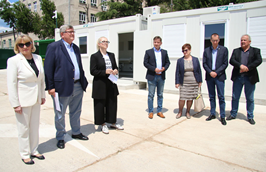
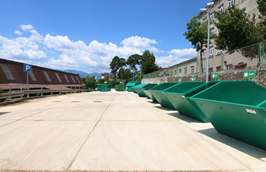
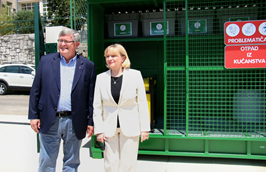
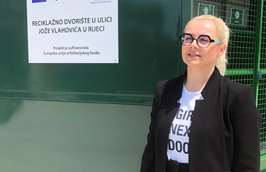
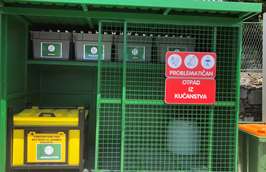
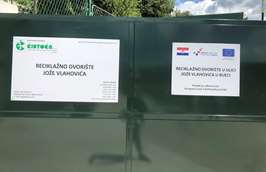


 Povećaj veličinu fonta
Povećaj veličinu fonta Smanji veličinu fonta
Smanji veličinu fonta Kontrast
Kontrast Disleksija
Disleksija Podcrtaj linkove
Podcrtaj linkove Resetiraj postavke
Resetiraj postavke